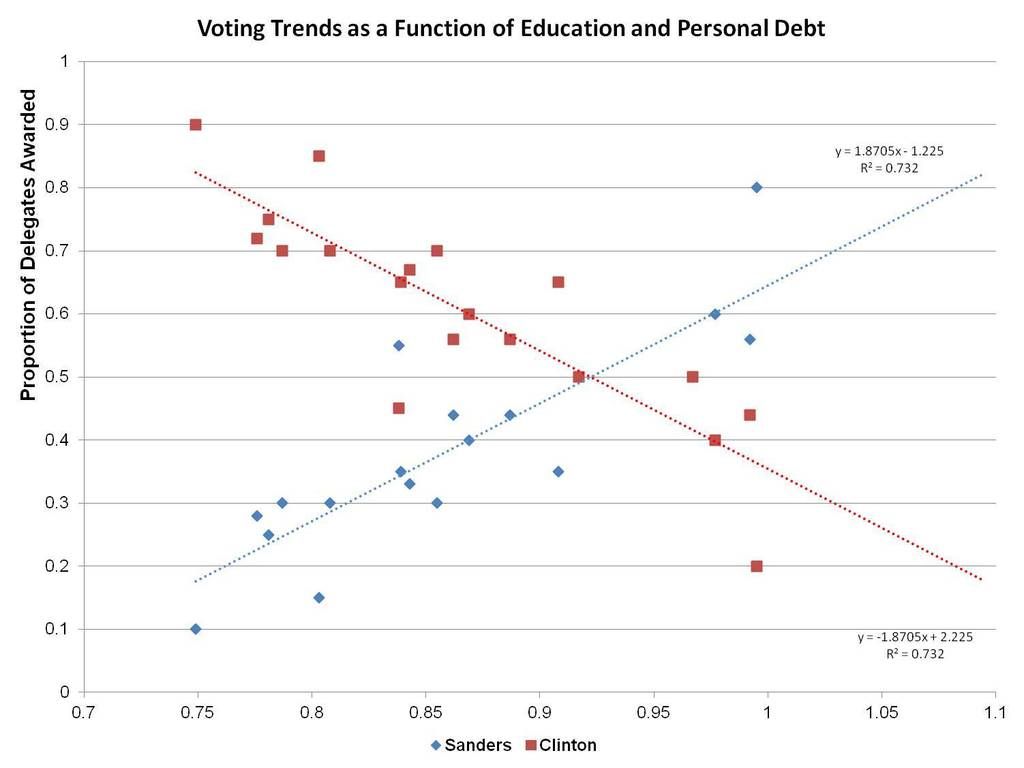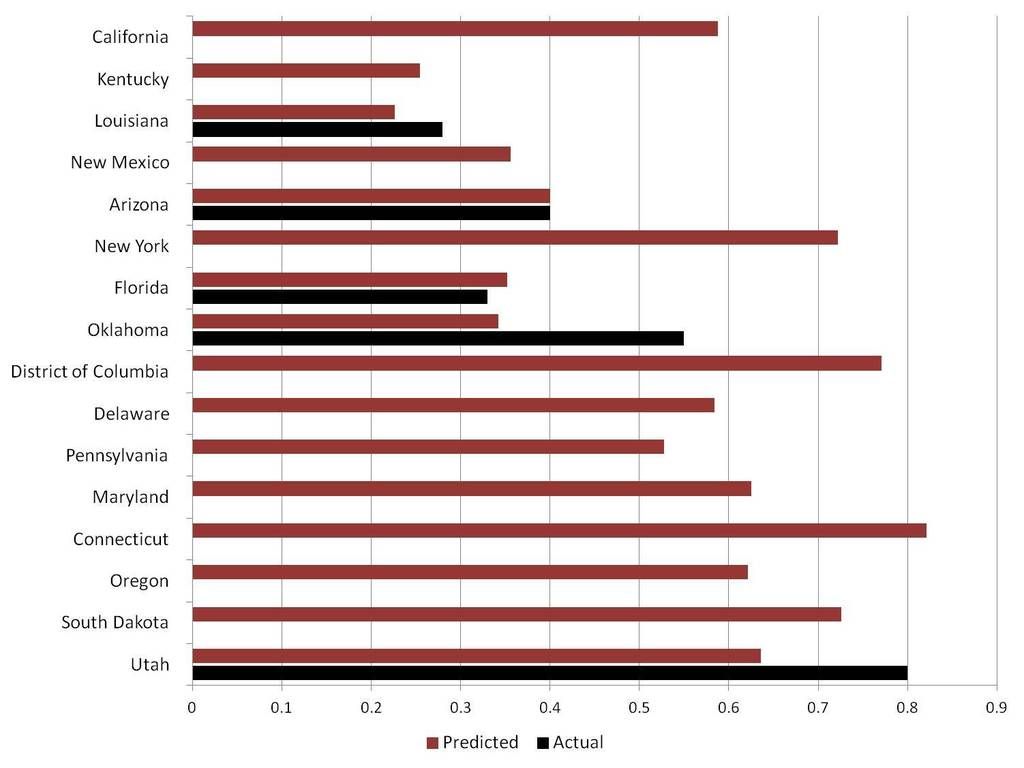2016 Postmortem
Related: About this forumBy the Numbers
I've been fiddling with various statistics, looking for correlations with the candidate's performance, and previously posted about the correlation between candidate performance and college education by state. The individual data points on that graph weren't a great fit to the trend line, though. Of particular note, caucus results showed huge variations from the trend line. Consequently, I've attempted to perform an analysis of that excludes caucus results. The results from Massachusetts are also excluded because it's an obvious outlier in every metric I've looked at. What follows attempts to correlate candidate's performance as a function of both education and personal debt by state. Raw data can be found at:
https://en.wikipedia.org/wiki/List_of_U.S._states_by_educational_attainment
http://www.richmond.com/table_e07a25fc-1735-11e4-94d7-001a4bcf6878.html
In the graph that follows, the y axis depicts the proportion of the delegates awarded to each candidate. The x-axis is a bit more convoluted. Support for Sanders increases in direct proportion to the percentage of the state population with a college education. Support for Sanders decreases in proportion to the percentage of the state population with debt in collections. I account for both variables by calculating 1+(the percentage of the state population with a college education) - (the percentage of the state population with debt in collections + (avg debt by state/avg income by state)). Including the debt/income is an attempt to scale the data (because being 10 grand in debt means different things to you if you're making 25k/yr vs 100k/yr).

Again, this graph represents primary states only and caucus states are excluded. The data points are a decent fit, with an r-squared value of .73.
Interpolating from this, some predictions for Sander's performance in several approaching states is as follows:

One interesting point here is that Sander's actual performance tends to be slightly better than the predicted performance in the closed primary states that have already voted. Second point of note, California is the only state included on the graph that isn't a closed primary. Feel free to pull this up and rub it in when any of the predicted numbers are off.
-fl
1StrongBlackMan
(31,849 posts)IamMab
(1,359 posts)First paragraph: I've selected all the data that proves the conclusion I want, and excluded everything else.
Second paragraph: Clinton voters are a bunch of cash-poor uneducated yokels, and people like that don't deserve to vote.
Did I miss anything?
frustrated_lefty
(2,774 posts)First paragraph: you are aware that Sanders has won all but one caucus, right? And aren't the Clintonistas the ones saying caucuses don't count? The only primary state excluded is Mass.If you so desire, visualize a single point midway between the trend lines on the rightmost side of the graph. It doesn't change the trend results.
Second paragraph: your interpretation, not mine. A college education, imo, doesn't necessarily make someone educated. It qualifies them for certain jobs. Why go 90 grand in debt pursuing a college degree when your job doesn't require it. As to debt, it's pretty pervasive and I certainly wouldn't presume to know WHY there is more debt in collections in some states rather than others. Actually, I initially expected those more in debt to favor Sanders. I was surprised to find otherwise.